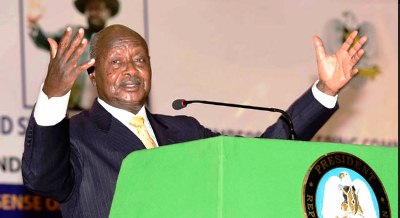Rights groups call for inclusive national dialogue in S. Sudan
August 24, 2017 (KAMPALA) – The International Youth for Africa (IYA) and the Centre for Peace and Justice (CPJ) concluded a one-day discussion with South Sudanese living in Kampala, Uganda to brainstorm on a lasting peace through inclusive national dialogue.

IYA’s executive director, Manyang Gatwech, said organisers of the event sought views from South Sudanese on ways how lasting peace can be attained through a comprehensive national dialogue.
Gatwech believes the rival leaders in South Sudan have an important task to iron out their grievances through a win-win talk.
“There is a need for both President Salva Kiir and Dr. Riek Machar to have compromised on things that matter in South Sudan,” he said.
Several participants recommended the High-Level Revitalization Forum initiated by the Intergovernmental Authority on Development (IGAD) as a mechanism to bring the country’s warring parties to a common understanding for a conducive ground for a dialogue.
Pastor Finish Mula from Zaan South Sudan Church in Kampala urged the government to consider an inclusive national dialogue process.
“Dialogue is between two people where there is a free place to discuss. You cannot have a dialogue with rebels within the country when the group who fight does not have amnesty,” said Pastor Mula.
He added, “We need to find a neutral ground where religious and civil society groups are allowed to express their views freely”.
According to Mula, any meaningful dialogue focuses on truth telling.
“For South Sudan to prosperous, we need everyone to play a good gesture for the dialogues, including the president himself,” he said.
Daniel Juol Nhomngek, a youth activist, said the national dialogue initiative needed to be utilized so that peace returns to South Sudan.
The national dialogue, launched in May, is both a forum and process through which the people South Sudan shall gather to redefine the basis of their unity as it relates to nationhood, redefine citizenship and belonging, as well as restructure the state for national inclusion.
Since December 2013, tens of thousands of people have been killed and over two million displaced in South Sudan’s worst ever outbreak of violence in the aftermath of its secession from Sudan in 2011.
(ST)
